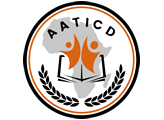Why Attend
The course introduces a pragmatic and process-based approach to developing and implementing business plans. The course offers participants the tools to transform ideas into strategic goals and to outline the operational and financial strategies needed to achieve these goals. The course expands on how to use the business plan as communication, negotiation and persuasion tool. This is critical when collaborating across different aspects of the business plan is required.
A well-written business plan should provide decision-makers with enough insights to assist them in deciding the viability and feasibility of new ideas, strategies, and initiatives. This course is designed with this key objective in mind.
Course Methodology
This course is highly interactive. From the onset, participants find themselves engaged in identifying business initiatives or opportunities within their company or on their own. Subsequently, they embark on developing the required business plan. The course follows a workshop approach where teams are formed, roles are defined and every team member contributes to the development of the business plan. Participants get the opportunity to work with different types of business analysis tools to evaluate and decide the direction of their ideas or initiatives. In addition, teams will present their work to the other teams in the class and they will end up with a complete business plan which they may share with their colleagues and superiors at work if they choose to.
Course Objectives
By the end of the course, participants will be able to:
- Explain the importance of a well-thought-out business plan for the success of the organization
- Describe the structure of a business plan and how it caters to market and organizational needs
- Apply the business plan development process to create a well-structured, convincing business plan covering all vital elements
- Develop a business plan that includes a detailed, practical and effective implementation strategy
- Evaluate the progress of the implementation of the business plan and take necessary corrective steps
Target Audience
Department heads, senior managers, managers and supervisors, project managers, team leaders, sales managers, marketing managers, entrepreneurs and others who would like to develop their business planning skills.
Target Competencies
- Creative thinking and business planning
- Collaboration and teamwork
- Market and situation analysis
- Financial analysis, forecasting, and break-even analysis
- Resource scheduling and budgeting
- Communicating and presenting
Location:
South AfricaTraining Dates:
Each course starts every Monday of each week. Please book your training on a date that is a Monday.Course Duration:
Unit Standard:
NQF Level:
Number of Credits:
Course Fees
Note: Please fill in the online application form on the left or bottom if this page to receive a quotation with detailed pricing from AATICD.How to Apply:
To Apply Simply Fill in the Online Enquiries / Applications form on the Right Sidebar or Bottom of this website https://www.aaticd.co.zaNB:
When filling the online application form; please take note of your desired Training Month, Duration in Weeks and Training Session. This will give us the exact dates you will be attending your classes.Also note that Tuition Fees must be paid upfront on or before training start date. This is to ensure that all resources are made availabe for you before you start. You will not be allowed into training if fees are not paid and verified.
Also note that Tuition Fees Cancellations must be made 14 business working days before the starting date of training. This will allow us to do a 50% refund of the total amount paid. If cancellations are made thereafter note that no refund will be made to delegates.
Tuition Fees include teas and lunch as well as either a laptop or tablet which a delegate will take home free of charge.
Tuition Fee DOES NOT include Accommodation, Dinners and other Extra Curricular Activities or Incidentals. Delegates are expected to fund this on their own. AATICD will not be held accountable for any incidents to delegates.
In-House Trainings are also available for 3 or more delegates for any duration. Please consult with our Administration for such In-House training bookings.
Course Outline
- Understanding the business plan
- Definition of a business plan
- Types of business plans
- Benefits of a business plan
- Business plan overview
- Components of a business plan
- The process behind the business plan
- The importance of the business plan to a firm’s value chain
- Securing the buy-in from stakeholders
- Developing the business plan
- Mapping vision, mission, and values
- Conducting a situation analysis
- Setting goals, objectives, and business strategies
- Developing tactics, programs, and action plans
- Forecasting, pricing and applying breakeven analysis
- Sourcing, allocating and scheduling
- Understanding basic financial concepts
- The income statement
- The balance sheet
- Cash-flow analysis
- Program Budgets
- Writing the executive summary
- Creating appendices and references
- Implementing the business plan
- The communication phase
- Job assignments
- Reporting structure
- Knowledgebase
- The controlling phase
- Dealing with deviations
- Causes analysis
- Providing constructive feedback
- Corrective actions and adjustments
- The corrections phase
- Goal revisions and expectations
- Scheduling challenges
- Budget adjustments and additional financial support requests
- Resources demands and constraints
- Staying away from common business plan mistakes
- Concluding the business plan
- The communication phase
- Reporting on the progress of the business plan
- Types of reports
- The recipients
- The information
- The quality
- The frequency




